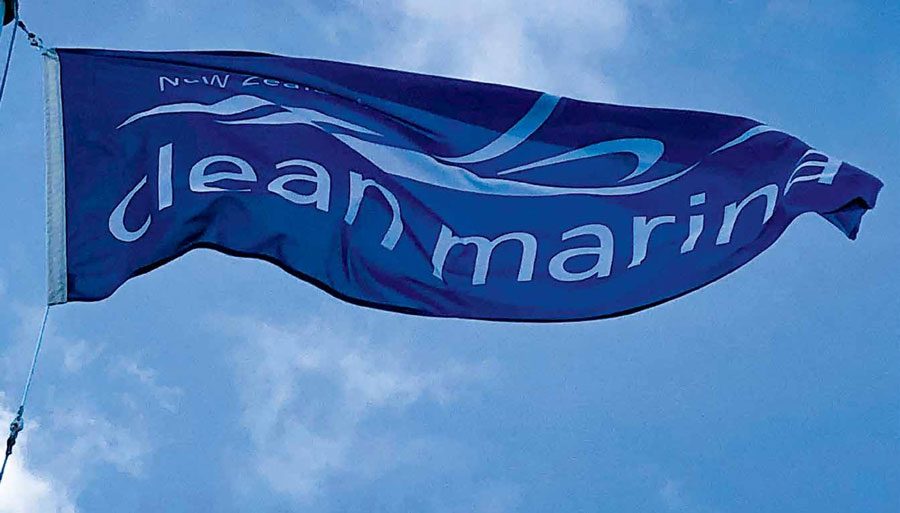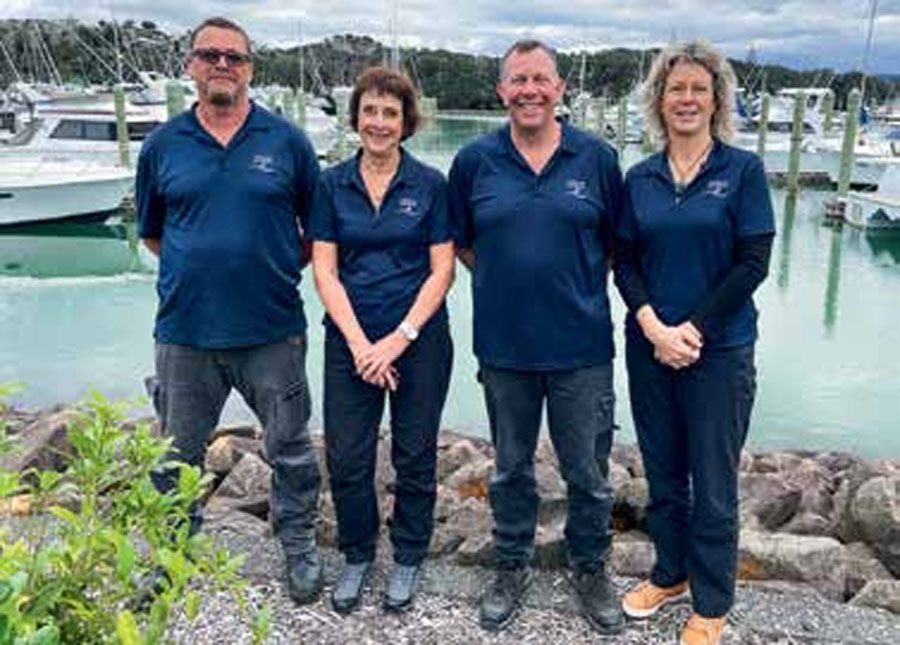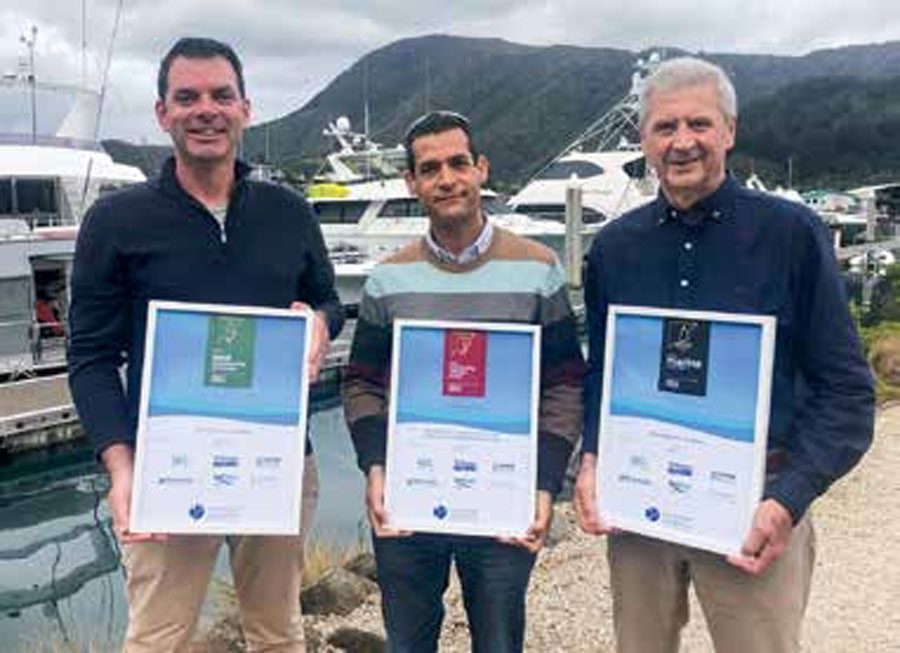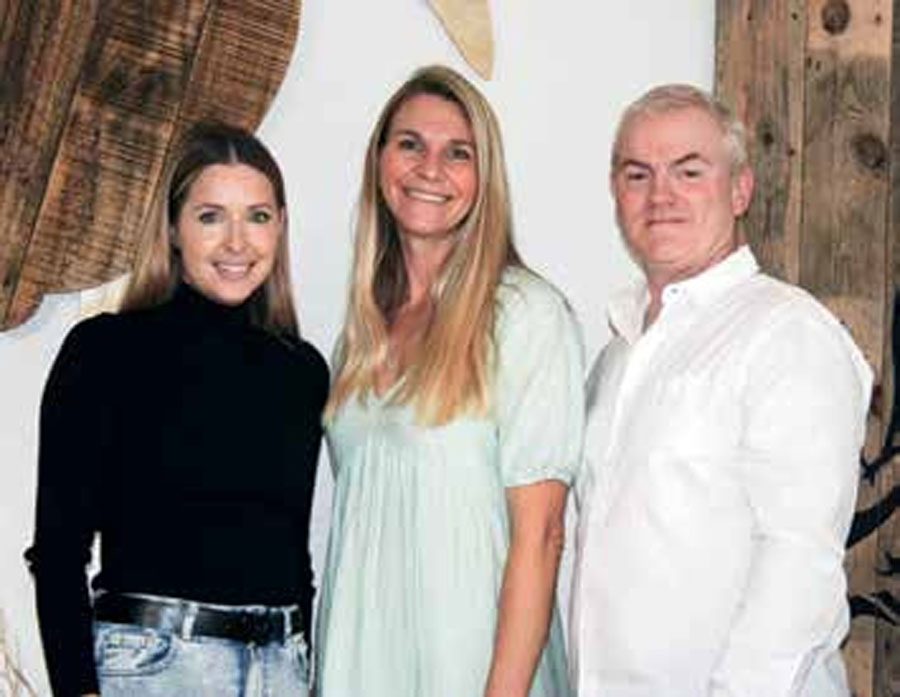

Marina operators are working hard, individually and collectively, to minimise the impact they have on their local environments.
This was celebrated at an industry awards ceremony in Marlborough on September 7, where eight marinas and boatyards received Clean Marina certification.
“The benchmark for environmental care in our industry gets higher and higher ever year,” says NZMOA Chairperson, Chris Galbraith. “Our older marina operations are making significant improvements to meet the standards and expectations of today. And new operations must meet a very high threshold in order to be built and to operate. To achieve this, the industry is delivering a huge amount of innovation and attention to detail through its operations.”

Several additional facilities have taken the Clean Marina pledge, which means they are actively working towards certification within the next twelve months.
Operations receiving certification included Bay of Islands Marina (Northland), Gulf Harbour Marina (Auckland), Westhaven Marina (Auckland), Whitianga Marina (Coromandel), Whangamata Marina (Coromandel), Tauranga Bridge Marina (Bay of Plenty), Seaview Marina (Wellington) and first-time recipient Te Ana Marina (Christchurch).
“Areas like the Coromandel and Marlborough Sounds are important natural environments that need to be cared for,” says Chris Galbraith. “But so do the operations in our city centres – and it’s great to see a conscious approach to aspects like filtering stormwater and run off now adopted as standard despite the significant investment for each operation.”


To receive certification marinas are audited on factors such as the provision and promotion of recycling facilities, no discharge policies and enforcement of these policies, provisions for boat owners to facilitate regular hull cleaning, and the use of sustainable materials and maintenance and building of infrastructure, and re-use of dredging materials. A focus on marina policies and procedures rounds out the criteria for becoming a certified Clean Marina.
Key challenges for marinas include filtering and discharge of water from its carparks and boatyards, discharge of wastewater from its customer vessels, energy efficiency, sorting and recycling of a wide range of waste, and marine biosecurity. BNZ www.nzmoa.com




